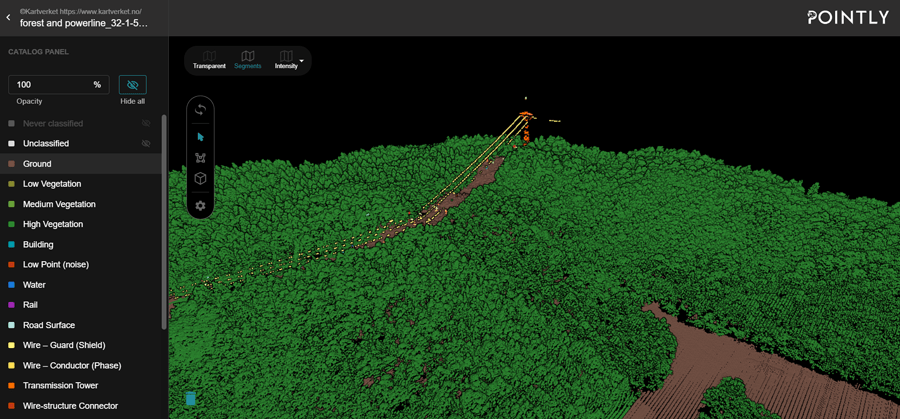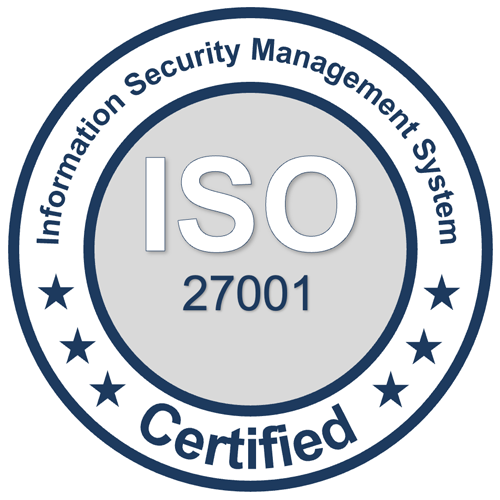Pointly – point cloud analysis from a single source
Classification platform for point clouds and individual 3D AI services

Most data, from financial transactions and social media posts to weather records and satellite imagery, has a spatial component. Many real-world problems are based on a specific geographical context. Supper & Supper's Geo AI combines the potential of the location and spatial connections to create cutting-edge AI solutions. For this purpose, customized AI solutions are developed from the latest developments in the fields of neural networks and machine learning. This includes tasks such as automatic image recognition and segmentation of e.g., drone or satellite imagery, space-time analysis, and predictions based on geo-referenced sensor data, such as object recognition and segmentation of 3D point clouds.
From one of these solutions, Supper & Supper has now spawned a spin-off called Pointly – and with that turned a technical idea into a successful startup. Pointly specializes in 3D point cloud solutions and provides a point cloud classification platform for fast and easy-to-use training data generation (see video below) with the same name as the startup.
You are currently viewing a placeholder content from YouTube. To access the actual content, click the button below. Please note that doing so will share data with third-party providers.
You are currently viewing a placeholder content from YouTube. To access the actual content, click the button below. Please note that doing so will share data with third-party providers.
Complementing the classification platform, Pointly offers services around 3D point cloud analysis. Here, customers can get customized solutions with full support, from proof of concept to highly scalable applications. In addition, they can benefit from the long-standing expertise of the Supper & Supper data scientists team, as the two companies are in close contact.
The idea for Pointly was born at a geo trade fair when Stefanie Supper (founder and CEO of Supper & Supper and Pointly) saw the many impressive point clouds that companies were presenting at their booths. Since her company, Supper & Supper, had already implemented a wide variety of AI use cases for 2D data, the thought occurred to her, "Can't AI be applied to 3D data as well?".
She discussed this idea with her Supper & Supper team shortly thereafter, and they determined the following:
Point clouds require analysis to provide valuable information about contained objects and spatial properties. Advances in neural network architectures make it possible to process 3D data directly, allowing the analytical capabilities of Deep Learning to be combined with the information richness of 3D point clouds. However, commercially viable deployments of these analytical capabilities require very large datasets of classified objects, called training data.
However, there was a problem for the team to tackle Deep Learning use cases for point clouds – until now, no suitable tool existed to create training data. Supper & Supper had to act themselves, and so Pointly was developed to significantly speed up the labor-intensive process of point cloud classification.
With Pointly, intelligent pre-segmentation and other labeling tools allow complex point clouds to be quickly labeled for user-defined objects, reducing the cost and time required to manually select points. Users from different application fields and industries can upload large amounts of 3D data (up to 150-million-point clouds) to the cloud-based Pointly to manually classify the objects contained in the point clouds in an efficient and user-friendly way. All point cloud types can be used (whether LiDAR, sonar, photogrammetric, or other imagery) and different point information (RGB, IR, intensity, etc.) can also be included.
In addition to manual classification tools, the platform will soon offer automated classification functions and options to train custom neural networks.
Promotion of the development of Pointly's classification methods by BMWi
The development of Pointly's classification method was funded by the German Federal Ministry for Economic Affairs and Energy (BMWi) as part of the "ZIM" (Zentrales Innovationsprogramm Mittelstand) funding program for a single R&D project from the GeoFab network. GeoFab was founded by various industrial companies and the University of Potsdam and is managed by ATeNe GmbH. The goal of the network is to increase productivity and efficiency through the application and integration of geodata in manufacturing processes.
In the following video Stefanie Supper (CEO) and Sid Hinrichs (Strategy, Sales and Finance) introduce Pointly and its Services:
You are currently viewing a placeholder content from YouTube. To access the actual content, click the button below. Please note that doing so will share data with third-party providers.
You are currently viewing a placeholder content from YouTube. To access the actual content, click the button below. Please note that doing so will share data with third-party providers.
We are very grateful to be a part of the GeoFab network and a special thanks goes to ATeNe GmbH and Anjali Ann D'Souza (Project/Network Manager). We were actively supported in all funding applications. For Ms. D`Souza, the network means:
Are you also interested in funding? Then you can find out more about the individual ZIM funding opportunities on the program's website.
Key elements of the professional deployment of the SaaS Pointly
For a professional deployment, Supper & Supper also focuses on the scalability of the application. In the following sections, you'll learn how the company ensures this for Pointly:
Supper & Supper relies on scalable resources of the Azure Cloud environment to deploy Pointly. For the compute-intensive processes, it sets up a Kubernetes cluster (AKS), which is the most widely used system for orchestrating Docker container swarms. Docker containers, in turn, are a prominent technology for isolating system environments. A container swarm in a Kubernetes cluster can thus dynamically distribute the total compute load across multiple host systems (nodes) and serve any number of end-users by flexibly adjusting the swarm size.
Another advantage of Pointly`s container-based infrastructure is its stability and suitability for microservice architectures. Pointly`s core functions were developed as microservices, which means that functional components of the platform are deployed in separate containers. This minimizes dependencies between components, greatly reducing error-proneness. Microservices communicate via standardized interfaces, which reduces development and documentation efforts, and if a microservice fails due to an error, other services can continue to be used.

